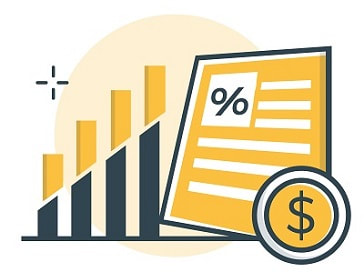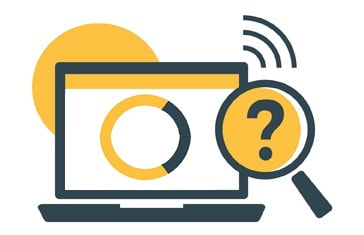The Best Ethical Kiwisaver Funds - The Definitive Guide to Investing for the Future
Our guide explains what an ethical KiwiSaver fund is, the pros and cons, how to choose a suitably ethical fund, the leading ethical KiwiSaver funds and frequently asked questions.
Updated 26 July 2024
Climate change and social responsibility considerations increasingly drive consumer decisions, including where your KiwiSaver money is invested (as outlined in this Stuff.co.nz article) and how it benefits the planet and society. Ethical investing via KiwiSaver has allowed more New Zealanders to put their money where they believe it will have the most impact.
Our guide is designed to help anyone interested in using their KiwiSaver to invest in companies that positively impact the world. We cover:
Climate change and social responsibility considerations increasingly drive consumer decisions, including where your KiwiSaver money is invested (as outlined in this Stuff.co.nz article) and how it benefits the planet and society. Ethical investing via KiwiSaver has allowed more New Zealanders to put their money where they believe it will have the most impact.
Our guide is designed to help anyone interested in using their KiwiSaver to invest in companies that positively impact the world. We cover:
MoneyHub Founder Christopher Walsh shares his views on ethical KiwiSaver funds:Ethical KiwiSaver funds are new in the market and still largely misunderstood. There is confusion around whether an "ethical" fund has better returns or worse returns than traditional KiwiSaver growth funds. This is important - most New Zealanders don't want to invest in weapons, but they also are generally uneasy about forgoing sizeable investment returns from "excluded" companies that perform well. Ethical KiwiSaver funds are not designed to deliver below-average returns.
Having explored ethical investing in other guides (see our ESG funds and ethical investing comparisons), I am confident that ethical investing can beat market returns, as reported recently by Morningstar. It's early days in New Zealand, but so far the 3-year and 1-year returns we've seen from ethical funds have been strong. If you're thinking about switching to an ethical KiwiSaver fund, two schemes particular stand out - Pathfinder and Booster. However, MAS, SuperLife and Simplicity are all popular examples of schmes that have innovated and launched ethically-focused funds that prioritise sustainable outcomes for both investors and the planet. |
Christopher Walsh
MoneyHub Founder |
What is an Ethical KiwiSaver Fund?
KiwiSaver is arguably the best investment scheme in New Zealand. Its long-term focus aims to reward New Zealanders who commit to sacrificing a small portion of their salary today to build up a retirement nest egg. Each KiwiSaver fund invests in at least a dozen companies that have the potential to increase in value. However, there are 100+ KiwiSaver funds to choose from, making it challenging to short-list ethical options.
If you choose a KiwiSaver fund branded "ethical", your money should be invested according to your values. An ethical fund will consider environmental, social, governance (ESG) and ethical issues related to individual companies. This means an ethical KiwiSaver fund will buy shares in companies wanting to 'do the right thing', protecting the planet and people at the same time as securing sustainable business operations.
Some ethical KiwiSaver funds won't invest in companies that 'do bad' - e.g. companies that test their products on animals, sell fossil fuels or profit from gambling. The good news is that well regarded research shows you can invest ethically and generate good returns, and this is what many KiwiSaver funds are focused on doing.
If you choose a KiwiSaver fund branded "ethical", your money should be invested according to your values. An ethical fund will consider environmental, social, governance (ESG) and ethical issues related to individual companies. This means an ethical KiwiSaver fund will buy shares in companies wanting to 'do the right thing', protecting the planet and people at the same time as securing sustainable business operations.
Some ethical KiwiSaver funds won't invest in companies that 'do bad' - e.g. companies that test their products on animals, sell fossil fuels or profit from gambling. The good news is that well regarded research shows you can invest ethically and generate good returns, and this is what many KiwiSaver funds are focused on doing.
Is my KiwiSaver already ethical?
It may be, but there are no guarantees, and there is no one definition of an ethical KiwiSaver. To help you decide, we list our list of considerations to make below.
Switching your KiwiSaver to an ethical fund: If you are concerned that your KiwiSaver fund is not as ethical as you would like it to be, switching to a new provider takes a couple of minutes.
Switching your KiwiSaver to an ethical fund: If you are concerned that your KiwiSaver fund is not as ethical as you would like it to be, switching to a new provider takes a couple of minutes.
Ethical KiwiSaver - Pros and Cons
There are some good reasons to ensure that your KiwiSaver is ethical. However, there are also some cautionary points, as we outline below:
Pros:
Cons:
Know this: You can find out precisely what each fund invests in using Sorted's Smart Investor tool. Our video outlines the easy steps you need to follow.
Pros:
- Resilience: Many ethically-focused companies have chosen long-term, value-growing goals as their priority. This means they don't focus on short-term profits and quick wins and build strong foundations as a result. As such, ethical funds don't tend to focus on oil, aviation, and retail industries, all of which have suffered since COVID-19. Instead, they focus on companies specialising in technology, clean energy and solving the world's problems.
- Global impact: Your KiwiSaver contributions reward companies that care about people and the planet. The more people who invest ethically, the more potential investment there is for ethically-focused companies. This means incentives are created for companies to focus on the environmental and social impacts of their business practices. While a 3% contribution on an $60,000 salary may not be significant to change the world, the more people ethically invest, the greater the global pressure.
- Protecting the future as the world evolves: It's generally accepted that the earth has a climate crisis. Governments are expected to change laws around pollution. An ethically focused company should not be affected by such changes and can potentially thrive in uncertain times. As KiwiSaver is a long-term investment, ethical investing can lower the risk that the companies your fund invests in are adversely affected by law and climate changes.
Cons:
- "Greenwashing": As there's no regulation around what is "ethical", one "ethical" fund may not be as "ethical" as another. In a nutshell, there is no standard meaning every day New Zealanders need to research and verify that they're happy with how the fund invests. However, a range of resources exist, including each ethical fund's website, investment policy, and tools like Mindful Money which help determine how ethical a fund is.
- Lack of diversification: Ethical investing excludes certain industries when standard funds offer diversification. This can be problematic if your fund invests narrowly and is caught out by unfavourable market conditions.
- Fees: The costs of extensively analysing companies' ethical nature can be expensive given the specialist workforce involved. This then adds to the total costs of running the fund, which is passed on to investors by way of higher fees.
- Funds that fail to make a difference: Some ethical funds just invest in tech companies that "don't do bad things". We think they need to try harder and look at investments with solid ESG scores rather than pick safe bets if they're marketing themselves as ethical players.
Know this: You can find out precisely what each fund invests in using Sorted's Smart Investor tool. Our video outlines the easy steps you need to follow.
How to Choose an Ethical KiwiSaver Fund that Meets Your Needs
Ethical KiwiSaver funds are increasing in popularity. However, deciding to invest in ethical funds adds some extra considerations you may not have when picking more conventional funds, which we outline below to help you make the right decision.
1. Costs vs Returns
- Actively managed ethical KiwiSaver schemes, such as MAS, Booster and Pathfinder, manage their funds to try and beat the returns of a sharemarket or benchmark. If a fund underperforms, the returns after deducting the costs from running the fund (i.e. the management fees) may be lower than an ethical index fund (for example, those operated by SuperLife or Simplicity).
- When you're choosing an ethical fund, fees are one consideration, alongside past returns. High fees do not correlate to high returns (and vice versa) as outlined in our active vs passive investing guide.
2. Timeframe
- Whatever KiwiSaver fund you shortlist, ethical funds usually have one thing in common - they focus on growth and are, therefore, long-term investments.
- Cash or Conservative ethical KiwiSaver funds are rare, hence the focus on growth funds. Ethical investing involves conscious investing decisions; the most significant impact happens when the fund manager buys shares in ethical companies with a long-term focus.
3. Is the ethical KiwiSaver fund 'exclusion-based' or 'impact-based?'
- There is a big difference between a KiwiSaver fund that excludes undesirable companies (operating casinos, manufacturing weapons, extracting fossil fuels etc.) and investments that protect the planet.
- KiwiSaver doesn't offer ethical sector funds, i.e. water funds, carbon-neutral funds or solar energy funds. This is because the risk to investors would be too high given there's no diversification.
- However, many KiwiSaver schemes invest with an ethical purpose rather than merely following an exclusionary process, making the investment decisions more meaningful.
- Our summary below of the most popular ethical KiwiSaver funds explains in detail the impact-based and exclusion-based funds.
4. Evaluate your existing ethical investments before joining or switching into an ethical KiwiSaver fund
- There is a risk that you become overexposed to ethical investments.
- Before investing, take a look at your current portfolio of funds and shares and make sure you're not concentrated in one area.
- Suppose you have money in an ethical NZX50 index and want to switch to an ethical KiwiSaver tracking the NZX50. In that case, you may need to diversify to reduce the risk of being over-exposed to the New Zealand sharemarket.
- Don't rush to join a KiwiSaver fund without carefully considering how well you're diversified.
- Know this: Pathfinder funds are an example of ethical funds you can invest in outside of KiwiSaver, either directly through their website or using Sharesies.
5. Ask about an investing impact report
- It's all very well to invest in an ethical KiwiSaver fund but it's hard to see if your money makes any difference without knowing the impact.
- An impact report should cover the carbon emissions, the gender mix on the board of directors, charitable donations etc.
- It may be problematic to aggregate for a fund with dozens of investments, but such documentation is the best way to understand the impact.
The Most Ethical KiwiSaver Funds
Important - Our research methodology:
- We have relied on data from Morningstar to shortlist five ethical and balanced and growth-focused funds you may want to consider. This list is not an endorsement of these funds. As with any investment, ethical or not, past returns are not a reflection of future results.
- With the above methodology in mind, we present ethical funds which stand out in a crowded market:
1. Pathfinder KiwiSaver Growth Fund
|
2. Booster SRI High Growth Fund
|
3. MAS Aggressive Growth Fund
|
4. Simplicity Growth Fund
|
5. SuperLife Ethica (Balanced) Fund
|
Ethical Investing Glossary
Ethical investment practices keep developing; our glossary below helps explain the must-know terms commonly used by fund managers, journalists and KiwiSaver schemes:
- Active Ownership: An investment strategy that involves shareholders using their influence to encourage companies to improve their ESG practices. This might involve voting on shareholder resolutions or engaging directly with management.
- Climate Risk: This term refers to the potential financial loss from the physical impacts of climate change, such as extreme weather events, or the transition risks associated with moving to a low-carbon economy, such as policy changes or technological disruption.
- Diversity and Inclusion (D&I): This term refers to a company's efforts to promote a diverse workforce and inclusive culture. Investors may consider D&I factors as part of their analysis, as research suggests that diverse and inclusive companies may perform better financially.
- ESG (Environmental, Social, and Governance): This acronym refers to the three key factors used to evaluate the sustainability and societal impact of an investment in a company. These factors provide a broader perspective of a company's business practices and long-term financial health beyond traditional financial metrics.
- ESG Integration: The practice of incorporating ESG data and insights into traditional financial analysis to enhance the investment decision-making process by considering a broader set of risks and opportunities.
- Ethical Screening: This process involves assessing potential investments based on certain ethical guidelines. It can be done through negative screening (excluding companies involved in undesirable sectors or practices) or positive screening (selecting companies that demonstrate desirable practices).
- Fossil Fuel Free: An investment approach that excludes companies involved in the extraction, production, and manufacturing of fossil fuels, as these activities are linked to climate change. The goal is to reduce exposure to carbon-intensive assets and support the transition to a lower-carbon economy.
- Green Bonds: Fixed-income securities designed to raise funds for projects with environmental benefits, such as renewable energy projects or clean transportation initiatives. The proceeds from these bonds are earmarked for green initiatives.
- Greenwashing: The practice of making misleading or unsubstantiated claims about the environmental benefits of a product, service, or investment. Greenwashing is a concern in the ethical investing space, as some funds may claim to be "green" or "sustainable" without rigorous ESG practices.
- Impact Investing: A strategy of investing in companies, organisations, and funds to generate measurable social and environmental impact alongside a financial return. It seeks to use private capital to address social or environmental issues.
- Proxy Voting: The act of a shareholder delegating their voting right to a representative (a "proxy"). In ethical investing, shareholders may use proxy voting to influence a company's ESG practices.
- RIAA Certification: A certification provided by the Responsible Investment Association Australasia (RIAA) that assures investors that the fund operates according to the highest standard of responsible investing, considering environmental, social, and governance factors in its investment decision-making process.
- Shareholder Activism: The practice of using an equity stake in a company to pressure its management to make changes. In the context of ethical investing, shareholder activism might focus on encouraging better ESG practices.
- Socially Responsible Investing (SRI): An investment strategy that seeks to maximise both financial return and social good. SRI funds typically use a combination of ethical and financial criteria in their investment selection process and often actively avoid investments in companies whose practices are perceived to harm society or the environment.
- Stewardship: The responsible management of investments, with a focus on generating sustainable value over the long term. Stewardship activities can include voting on shareholder resolutions and engaging with companies on ESG issues.
- Sustainable Development Goals (SDGs): These are 17 goals set by the United Nations to achieve a more sustainable future by 2030. The SDGs address global challenges such as poverty, inequality, and climate change. Some investors align their investments with the SDGs to contribute to these global targets.
- Sustainable Investing: This investment discipline considers environmental, social, and corporate governance (ESG) criteria to generate long-term competitive financial returns and positive societal impact. It emphasises investing in companies that demonstrate good sustainability practices and avoids those that do not.
- Transition Risk: Refers to the financial risks associated with the transition to a lower-carbon, more sustainable economy. Companies that are not prepared for this transition may face regulatory, technological, or market changes that impact their business model.
- UN Principles for Responsible Investment (UN PRI): These are six voluntary principles that provide a framework for integrating ESG considerations into investment decision-making and ownership practices. They were developed by an international group of investors in partnership with the United Nations.
Frequently Asked Questions
Ethical KiwiSaver funds continue to evolve. We have anticipated common queries below:
What is the best ethical KiwiSaver fund?
There is no "best" fund - our guide is published to explain the options. What fund is right for you will ultimately be the best choice.
Do ethical KiwiSaver funds performs better than ordinary KiwiSaver funds?
There is no evidence that ethical funds underperform or overperform. Ethical funds are relatively new to KiwiSaver, and KiwiSaver has only been operating since 2007.
Is my KiwiSaver fund ethical?
Two schemes in New Zealand currently claim to be entirely "ethical" – Pathfinder (all funds) and Booster (SRI funds). However, there are many other "ethical" or "sustainable" options, including MAS, Simplicity, SuperLife, Mercer and more. To find out how ethical your current fund is, we suggest using the Mindful Money tool and entering in the fund's name. Our video outlines how the tool works and what you can learn from it.
Where can I go for more information?
We suggest consulting Mindful Money, the only ethical KiwiSaver screening tool in New Zealand. Our guides to Ethical Investing and Favourite ESG Funds have further details to help you make an informed choice.
What types of companies or sectors do ethical KiwiSaver funds typically avoid?
Ethical KiwiSaver funds generally avoid investing in companies or sectors that are involved in activities perceived as harmful to society or the environment. This can include companies involved in the production of fossil fuels, tobacco, alcohol, firearms, or those that engage in activities that violate human rights or labour standards. However, the specific exclusions can vary between different funds.
How do ethical KiwiSaver funds select companies to invest in?
Ethical KiwiSaver funds typically use a combination of negative and positive screening in their investment selection process. Negative screening involves excluding companies involved in undesirable sectors or practices, while positive screening involves selecting companies that demonstrate good environmental, social, and governance (ESG) practices.
How can I make sure a KiwiSaver fund's ethical claims are legitimate?
It's important to research and verify a fund's ethical claims. This could involve checking whether the fund has received any certifications, such as RIAA certification, or checking third-party sources, such as Mindful Money. It's also worth noting that some funds may engage in 'greenwashing', which involves making misleading claims about the environmental benefits of their investments.
Can I switch to an ethical KiwiSaver fund if I'm already enrolled in a different KiwiSaver fund?
Yes, you can switch to a different KiwiSaver fund at any time. However, before switching, it's important to consider the potential costs and implications, including the different risk profile of the ethical fund, and any potential changes to your investment returns.
Do ethical KiwiSaver funds charge higher fees than other funds?
The fees charged by ethical KiwiSaver funds can vary, just like any other type of fund. Some ethical funds might charge higher fees due to the additional research and screening involved in selecting ethical investments. However, it's important to consider the fees in the context of the fund's overall performance and your ethical preferences.
Can ethical investing help mitigate the risks associated with climate change?
Investing in ethical funds can help support the transition to a lower-carbon economy, which may help mitigate the risks associated with climate change. However, it's important to note that investing in ethical funds does not eliminate all investment risks, and investors should always consider their own risk tolerance and investment goals.













